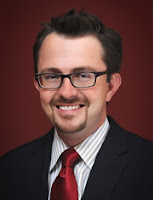Tenex FAST procedure
Tenex FAST procedure is a minimally invasive method to identify and remove pain generating scar tissue from tendons in the elbow, knee, ankle, foot and shoulder which can occur due to various musculoskeletal conditions such as tennis elbow, golfer’s elbow, jumper’s knee, plantar fasciitis, swimmer’s shoulder and Achilles tendonitis.
The procedure is performed under local anaesthesia to numb the affected area. The micro tip of the TX1 tissue removal system, the size of a tooth pick, is inserted into the affected area under ultrasound guidance. The tip releases ultrasonic energy which breaks and emulsifies the scar tissue which is then aspirated. It takes about 15 minutes and the tiny opening is covered with an adhesive bandage with no sutures required.
You will be able to return to normal activities in approximately a month after the procedure. Tenex FAST procedure is the treatment of choice for tendon pain when compared to conventional treatment which involves rest, medication, and physical therapy. Recovery from conventional treatment can take a few years and restrict your activities during this time. Tenex FAST is also safer when compared to open surgery through an incision.
Dr. Alain Elbaz
Orthopaedic Surgeon
Dr. Alain Elbaz relocated his practice from Montreal, Canada and has practiced orthopedic surgery in Houston, Texas since 1998. He joined Advanced Orthopedics and Sports Medicine L.L.P. in 2001. Dr. Elbaz graduated from the University of Montreal in Orthopedics in 1993. He is ABOS board certified.
 Dr. Elbaz has practiced orthopedics and sports medicine with increasing emphasis on the treatment of shoulder disorders. He obtained extra training in open and arthroscopic shoulder surgery in Lyons, France with Dr. Gilles Walch. He is very conservative in his approach. He uses the most advanced, and least invasive techniques. He routinely performs arthroscopic rotator cuff repairs and arthroscopic Bankart repairs. In addition he is one of the few surgeons in Houston, Texas that has trained in Lyons, France to perform the Latarjet shoulder stabilization procedure.
Dr. Elbaz has practiced orthopedics and sports medicine with increasing emphasis on the treatment of shoulder disorders. He obtained extra training in open and arthroscopic shoulder surgery in Lyons, France with Dr. Gilles Walch. He is very conservative in his approach. He uses the most advanced, and least invasive techniques. He routinely performs arthroscopic rotator cuff repairs and arthroscopic Bankart repairs. In addition he is one of the few surgeons in Houston, Texas that has trained in Lyons, France to perform the Latarjet shoulder stabilization procedure.
Dr. Elbaz also has a keen interest in hip replacement surgery. He has performed many hip replacements but was unsatisfied with the most common techniques because they involved cutting through healthy muscle and tendon. He trained in the anterior muscle sparing hip replacement procedure with Dr. Joel Matta on two occasions in Los Angeles , California. This operation allows the surgeon access to the hip joint without cutting into any muscle and with the aid of real time x-ray he is able to place the components in the optimal position and assure optimal leg length.
He enjoys practicing at advanced orthopedics because of the emphasis that is placed on providing patients with the most current, peer-reviewed treatments in a friendly down to earth atmosphere.
For more information click the below link:



